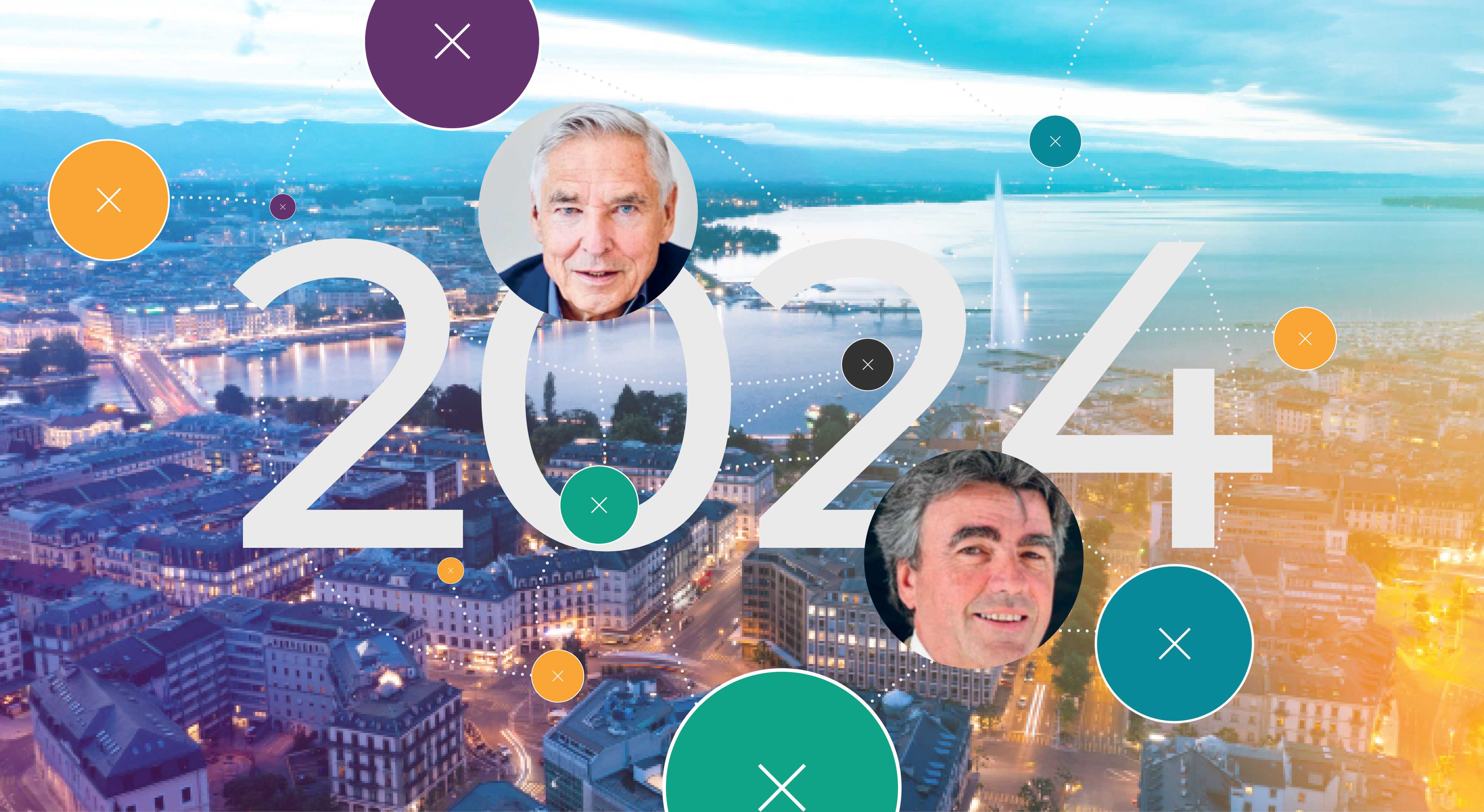We have to acknowledge that we are in the midst of a revolution. What's more, with the numerous and rapid advances in science, we have entered an era in which technological and social changes are occurring at an ever-accelerating pace, leading to a state of permanent disruption and reducing the sense of tranquil stability to a relic of the past.
We all live in a world accelerated by science and technology, and there is no plausible indication that the pace of change will slow down, given the ever-increasing public and private investments and the immediate adoption of innovations by businesses and citizens that result from this acceleration.
But there is another truth: not everyone benefits enough from science and technology today. Therefore, the first path to a globally sustainable future for people, society and our planet is to rapidly democratise, as much as possible, the early understanding and early use of emerging scientific breakthroughs in 5, 10 and 25 years.
The most recent example is the surge in artificial intelligence over the past two years, with its myriad applications and no one really knowing what it will be capable of in the years to come. The Geneva Science and Diplomacy Anticipator Foundation (GESDA) was created to anticipate this frenetic pace, and its reference tool remains the Science Breakthrough Radar, the fourth edition of which you are holding in your hands.
The 2024 Radar provides an overview of emerging trends in five selected major areas of science and technology. A total of 40 emerging scientific themes and 348 breakthroughs are covered in this document, which is the result of the reflections of 2100 scientists and experts from 87 countries.
And since prioritisation is also one of the basic functions of the Radar, we have selected eight Anticipated Scientific Trends that should be on your radar: eight areas that we believe deserve increased attention because of their recent developments, their potential to transform society and their need to be anticipated because they are new or little known. They are: Eco-augmentation; Archaeology; Unconventional Computing; Neuro-augmentation; Healthspan and Lifespan Extension; the Orbital Environment; the Behavioural Science of Groups; and Synthetic Biology.
All of these fields are evolving at a breathtaking pace. This has prompted us to hold the 2024 Geneva Science and Diplomacy Anticipation Summit under the banner of "The Great Acceleration". As we explore the transformative power of accelerating scientific progress, four key areas of scientific augmentation emerge, which are also the key pillars of the 2024 Summit programme. They are: augmenting data, augmenting humans, augmenting ecosystems and augmenting knowledge itself.
The issue of technological progress also occupies the highest echelons of multilateral politics. Contacts with the UN Security Council illustrate this. During the August 2024 visit to Campus Biotech, GESDA's headquarters in Geneva, members of the Security Council learned how technological advances in artificial intelligence, quantum technologies, synthetic biology and neurotechnology will reshape the global security landscape over the next 5, 10, and 25 years.
But are current and future decision-makers, not to mention citizens, sufficiently informed and prepared to address the challenges posed by these technological advances? Are they ready to respond to this acceleration and its complex challenges?
In this context, the GESDA Foundation is launching its second product, the Knowledge Augmentation Initiative at the 2024 Summit. This will consist of three complementary components:
Knowledge for Future Leaders: an Anticipatory Leadership Initiative to train and prepare decision-makers across society for a world accelerated by science and technology. To incubate this intiative, supported by UK-based charity Wellcome, five Anticipatory Leadership Weeks will be organised in 2025 with host partners in five different regions of the world.
Knowledge for diplomats: A digital tool for political intelligence — the GESDA Anticipation Observatory — that puts anticipated scientific advances into a broader context through the lenses of prosperity, peace and security, and human rights. The first pilot application, focused on neurotechnology, will be launched in October 2024.
Knowledge for the public: An interactive exhibition, the Geneva Public Portal to Anticipation, will provide citizens with an accessible entry point into a world accelerated by science and technology. The first pilot installation will be part of the Swiss Pavilion at the Osaka World Expo in 2025.
And of course, the GESDA Science Breakthrough Radar® will continue to be an essential tool underpinning all components of this second GESDA initiative, which follows the launch of the Open Quantum Institute in Spring 2024.
Peter Brabeck-Letmathe, Chairman of the Board of Directors of the Geneva Science and Diplomacy Anticipator
Patrick Aebischer, Vice Chairman of the Board of Directors of the Geneva Science and Diplomacy Anticipator
Geneva - Switzerland - October 2024





